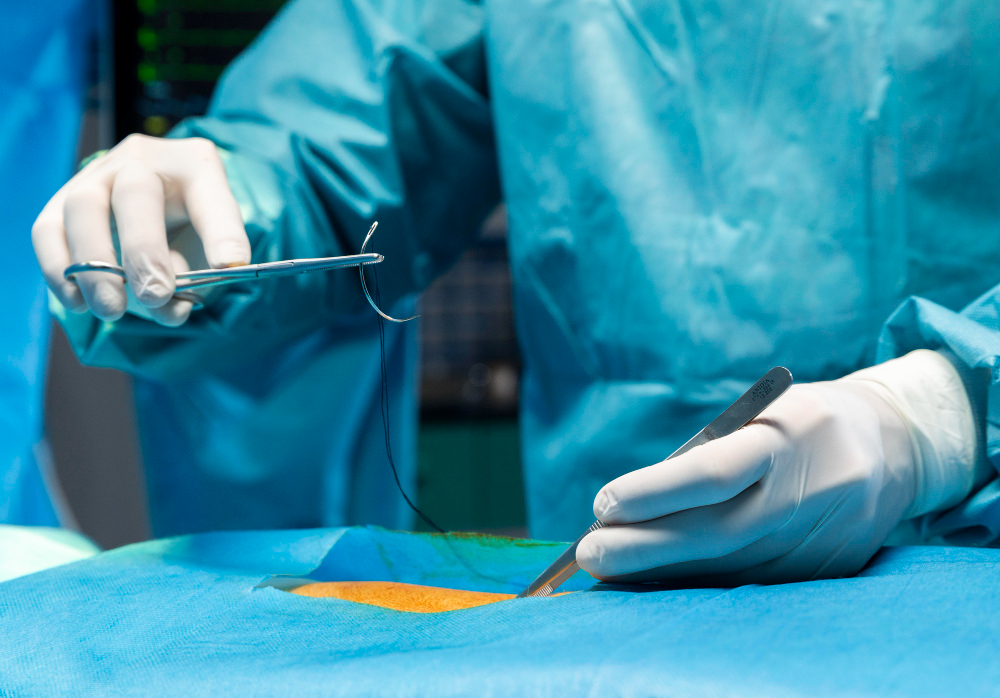Hernia Surgery

Hernia surgeries are common procedures used to repair weaknesses or tears in the abdominal wall that allow organs or tissues to protrude through. There are several types of hernias, with the two most common being inguinal and ventral hernias.
Inguinal Hernia Surgery: Inguinal hernias occur when tissue, such as part of the intestine, protrudes through a weak spot in the abdominal muscles in the groin area. This type of hernia is more common in men than in women. In inguinal hernia surgery, the surgeon makes an incision near the groin and pushes the protruding tissue back into place. They then reinforce the abdominal wall with stitches or a mesh to prevent the hernia from recurring. The surgery can be performed using open surgery or minimally invasive techniques such as laparoscopy.
Ventral Hernia Surgery: Ventral hernias, also known as incisional hernias, develop at the site of a previous surgical incision in the abdominal wall. They occur when tissue protrudes through a weakened area of the scar tissue from a previous surgery. Ventral hernia surgery involves making an incision near the hernia and pushing the protruding tissue back into place. The surgeon then repairs the weakened area of the abdominal wall with stitches or a mesh to provide support and prevent recurrence. Like inguinal hernia surgery, ventral hernia repair can be performed using open surgery or laparoscopic techniques.
Other types of hernia surgeries include femoral hernia repair, which is similar to inguinal hernia repair but occurs lower down in the groin area, and umbilical hernia repair, which addresses hernias that develop around the belly button.
The choice of surgical approach (open vs. laparoscopic) depends on factors such as the size and location of the hernia, the patient’s overall health, and the surgeon’s preference and expertise. Laparoscopic surgery typically offers faster recovery times, less postoperative pain, and smaller incisions compared to open surgery, but it may not be suitable for all patients or hernia types.
Overall, hernia surgeries are generally safe and effective procedures with low complication rates. However, as with any surgery, there are risks involved, including infection, bleeding, and recurrence of the hernia. Patients should discuss the benefits, risks, and expected outcomes of hernia surgery with their healthcare provider to make an informed decision about their treatment options.


